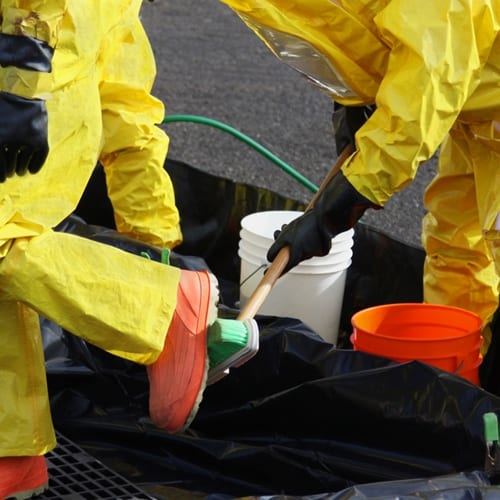Commercial divers often work in contaminated waters, a process that can require HAZMAT protection. The commercial diving insurance needed for these dangerous jobs should take into account exposure that will affect special suits, equipment and (most importantly) workers.
The following are some of the hazardous conditions that specialty divers contend with:
- Sewer Diving: Sewage poses an obvious health threat, but there is also the risk of gas and crumbling tunnels. In a piece for the Guardian, Dan Smith recently documented the preparations he had to take to explore the London sewer system in pursuit of a "fatberg," a giant congealed mass that blocks underground tunnels. Proper lighting, methane detectors, gloves and helmets are all safety essentials, and before anyone enters the tunnels, all of the proper health and safety diving insurance forms need to be signed.
- Nuclear Divers: Any site that once housed a nuclear missile should be tested for radioactivity before divers enter the area. Even after risk assessment, divers in nuclear-affected waters have to follow their own unique procedures to protect themselves, as the Commercial Diver Network notes. "They may use a cold water suit to prevent heat stress from contaminated areas," the source says.
- Chemical Plant Diving: As with other hazardous substances, divers entering chemical plants need to perform research before hand to know what they are getting into and the effect of the pollution on the surrounding environment. Paper mills and treatment plants are examples of these kinds of facilities. If a site is currently dangerous, a diving plan can be formulated based on when the water will be acceptable for the expedition to begin.

